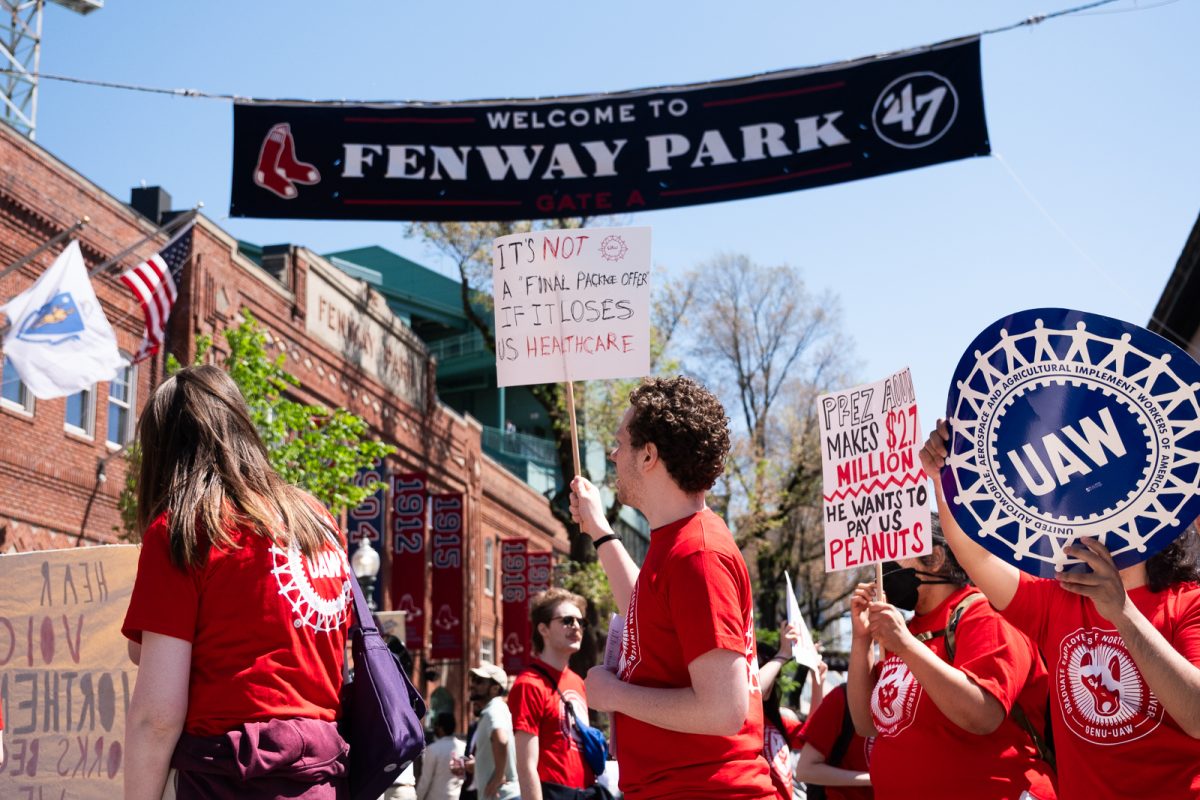Renee Spicer is disillusioned with co-op. Like many students, she came to Northeastern planning to go on several co-ops and make the most of experiential education. Now a middler, Spicer still hasn’t gone on co-op, and said she may not be able to go out for another year.
Northeastern is touted as the No. 1 school for co-ops and internships, and many cite the program as a main reason for choosing Northeastern. But since semester conversion in fall 2003, co-ops have been tightly limited to six-month blocks, with little room for internships offered over the summer or during traditional four-month semesters. This leaves some students out of the running for competitive internships not specifically tailored to co-op.
“It probably really depends on what your major is. Either it really works for you or you’re screwed,” said Spicer, who is in the process of switching her major from photography to multimedia.
Spicer said she became frustrated with the lack of co-op options for photography majors, since most are unpaid and do not last the full six months of the rotation. She said she decided she would rather do her co-op over the summer, and mentioned the idea to her co-op advisor, Ann Galligan.
She discovered what many students have found out: Summer co-ops, or any co-ops that don’t correspond to the six-month rotation, are not an option. And with the advent of semester conversion, exceptions have become difficult, if not impossible, to come by.
Galligan, who advises photography and other art-related majors, said she often has difficulty placing students for co-op.
“Photography is often project-based, not position-based,” Galligan said. “It’s like we’re trying to force the photography industry to fit in with co-op.”
Lynn Lyford, vice president of the division of cooperative education, said there are options for students whose co-ops don’t last the entire six months. She suggested students pair two co-ops together to fill the time.
Although Spicer said she was aware of this option, she said it is unrealistic to expect students to find two jobs in their respective fields that combine to last six months.
“If people are finding a job for the second half of co-op, most likely it’s not in major-related jobs. They’ll probably end up working in a restaurant during that time or in retail,” Spicer said.
Lyford also said students have the option of taking a semester off and doing internships independently. Although some choose this route, it means they don’t get co-op credit for the experience, or the benefit of Northeastern’s advising support.
Kellianne Murphy, co-op advisor for journalism majors, said students shouldn’t have to go it alone at a school that prides itself on experiential education.
“If they do it alone, they can’t utilize the co-op advisor. We’re willing to do it, but it’s all extra. There’s no incentive for co-op advisors to help students find, apply for and land these major internships,” Murphy said. “How can we claim that we’re running a quality co-op program when we’re keeping students from competing for these high-profile scholarships?”
Interning independent of Northeastern also means students sometimes have to pay for academic credit, since the experience is not considered co-op. Galligan said this simply doesn’t make sense.
“Why would students come to Northeastern to pay for directed study?” Galligan said.
This inflexibility stems from an agreement with the Department of Education (DOE). When Northeastern converted to semesters, a contract was filed with the DOE that outlined the parameters of co-op. In that contract, it states that co-op must be a six-month work experience, and the school can’t make exceptions without amending the contract, said Craig Bettinson, director of cooperative education for the College of Arts and Sciences and the College of Computer and Information Science.
When the contract with the DOE was created, a few scheduling exceptions were written in for majors that anticipated problems. Those exceptions are for theatre, physical therapy, pharmacy and specific nursing fields. In subsequent years, co-op advisors in other majors have discovered a need for such exceptions.
“We didn’t ask for it for other liberal arts majors because we didn’t know how rigid it was going to be,” Murphy said.
Murphy said she would like to see a system that would make it easier for students to make exceptions, although she said she does not support the idea of a summer co-op track.
“I wouldn’t argue for a summer-only co-op division,” Murphy said. “We need to be able to fill the jobs year-round to keep employers on board. I would just like to see a process for exceptions.”
In the meantime, students like Spicer are finding co-op may not be what they bargained for, especially at a school that markets it so heavily.
“I planned on coming here and having a paid co-op,” Spicer said. “I wasn’t aware that the photo co-ops are like this.”
Lyford said this issue has been discussed in recent months, and they are looking into the situation but have yet to find a concrete solution.
“I think we need to have some more information in order to take it further, and I can’t tell you what the next step is going to be at this point,” Lyford said. “Unfortunately, there’s not a simple answer, but just because there isn’t a simple answer doesn’t mean we shouldn’t pursue it.”–>









